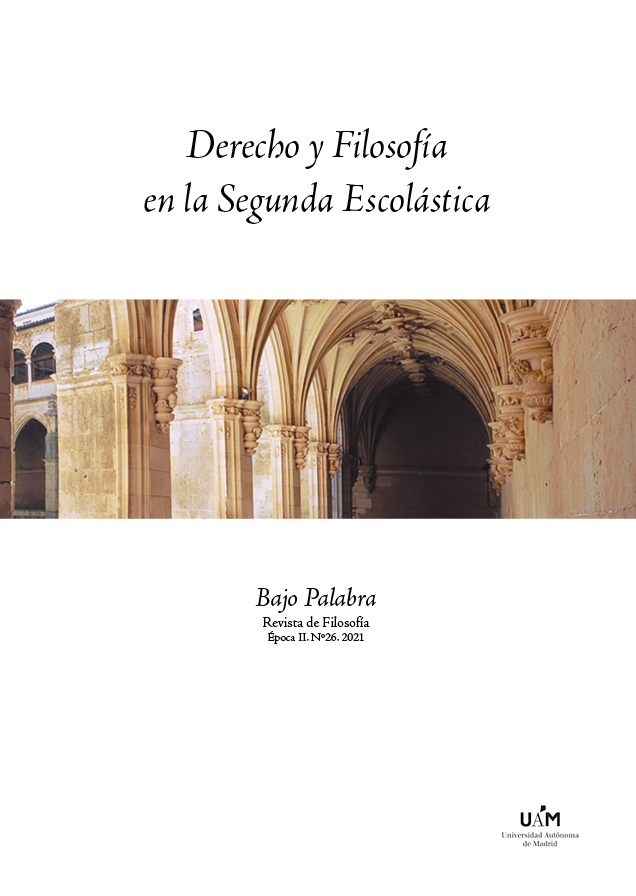Aristotle introduced by Jean Gerson: The Theory of the Conquest of Vasco de Quiroga (1470?-1565)
Keywords:
Vasco de Quiroga, Conquest, just war theory, Aristotle, Jean Gerson, utopia, political philosophyCopyright (c) 2021 Christian Schäfer

This work is licensed under a Creative Commons Attribution 4.0 International License.
Abstract
In his Información en Derecho, Vasco de Quiroga (1470?-1565) discusses the just war theory of his times, proposing an own take on the subject. He dismisses, and occasionally attacks traditional attempts to justify the Spanish Conquista, which argued that the conquest was justifiable, because the American natives were idolaters, aggressors against the Spaniards, or infringers of Natural Law. Yet, he puts forward a theory which, based on Aristotle’s political thought, allows for a conquest of the New World alleging that there was no legitimate political authority whatsoever in pre-Columbian America. In this paper, I try to get to grips with Quiroga’s interpretation of Aristotle and his application of this interpretation to the peoples of New Spain.
Downloads
References
Aristoteles, Politica, edited by W.D. Ross. Oxford, Oxford University Press, 1957. doi: 10.1093/oseo/instance.00259280 , https://doi.org/10.1093/oseo/instance.00259280
Baker-Smith, D., Reading Utopia. En G.M. Logan (ed.): The Cambridge Companion to Thomas More. Cambridge, CUP, 2011. doi:10.1017/CCOL9780521888622.009, https://doi.org/10.1017/CCOL9780521888622.009
Gerson, J., De ecclesiastica potestate et de origine juris et legum, Paris, 1474.
Martín Hernández, F., Vasco de Quiroga, Salamanca, Publicaciones UPS, 1993.
Pagden, A., Spanish Imperialism and the Political Imagination: Studies in European and Spanish-American Social and Political Theory, 1513-1830, Boston, Yale University Press, 1998.
Quiroga, Vasco de, Información en Derecho. En P. Serrano Gassent (2002), Vasco de Quiroga: La Utopía en América, Madrid, Dastin, 2002, 69-249. [= IeD]
Quiroga, Vasco de, Reglas y Ordenanzas para los Pueblos-Hospitales de Santa Fe, 2002. En Serrano Gassent, P., Vasco de Quiroga: La Utopía en América, Madrid, Dastin, 2002, 251-274. [= RyO].
Sabido Sánchez Juárez, C., “El programa humanista en la utopía práctica de Vasco de Quiroga”. En V. Aspe Armella (comp.), Tomás Moro y Vasco de Quiroga. Utopías en América, Pamplona, EUNSA, 2018, 115-135.
Schäfer, C., “La Política de Aristóteles y el Aristotelismo político del siglo XVI”, Ideas y Valores 119, 2002, 109-135.
Schölderle, Th., Utopia und Utopie: Thomas Morus, die Geschichte der Utopie und die Kontroverse um ihren Begriff, Baden-Baden, Nomos, 2011. doi: 10.5771/9783845229331 , https://doi.org/10.5771/9783845229331
Serrano Gassent, P., Vasco de Quiroga: La Utopía en América. Madrid, Dastin, 2002.
Stengel, B., Der Kommentar des Thomas von Aquin zur Politik des Aristoteles, Marburg, Tectum, 2011.
Villaseñor, R., “Luciano, Moro y el utopismo de Vasco de Quiroga”, Cuadernos Americanos 4/4, 1942, 155-175.
Zorroza, M.I., “La utopía renacentista y el modelo de Vasco de Quiroga”. En V. Aspe Armella (comp.), Tomás Moro y Vasco de Quiroga. Utopías en América, Pamplona, EUNSA, 2018, 97-113.
